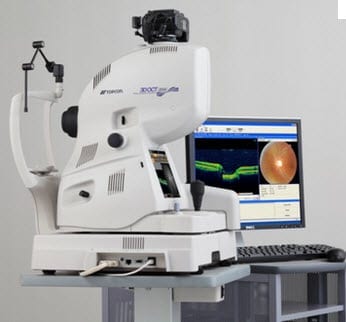Vision Loss, Glaucoma & Pre-glaucoma
Glaucoma is usually a silent progressive eye disease, and for this reason we cannot emphasise strongly enough the importance of having regular eye examinations.
Optometrists are usually the first port of call when it comes to eye tests, and therefore are the first practitioners to detect signs of the disease.
In some cases we discover this at the very early stages, and thankfully the visual prognosis is usually very good once treatment is commenced.
Unfortunately in other cases, we detect significant or advanced glaucoma, which has up until that point gone un-diagnosed due to irregular eye examinations or poor levels of equipment and resources. While treatment at this point may help to preserve remaining vision, it will not restore vision that has already been damaged or lost.
Here at OpticalRooms we have a special interest in glaucoma, it’s early detection and management. While many will be familiar with eye tests such as ‘the pressure test’ or a photograph at the back of the eye, we are eager to go a step further.
Pre-glaucoma
‘Pre-glaucoma’ is a debated term among researchers, but many ophthalmologists now believe that pre-glaucoma is defined as having physical signs of glaucoma, before any peripheral vision has been lost or damaged.
This can only be detected by carrying out a detailed scan of the nerve fibre layer of the retina (the back of the eye), using a state of the art ocular CT scanner, the ‘OCT’.
This is an extremely sensitive and detailed test, giving patients a thorough high quality examination, that very few people in Ireland have access too.
Our optometrists also have first hand experience working alongside ophthalmological glaucoma specialists at secondary healthcare level.
Through this experience, we have learned the importance of early detection and treatment, as well as the knowledge required to differentiate between glaucoma suspects and glaucoma sufferers.
As a result of the wide range of tests we carry out, we can reduce unnecessary further referral,
which wastes valuable time and money for the hospital services and their patients, leaving shorter waiting lists for those in urgent need medical glaucoma treatment.

